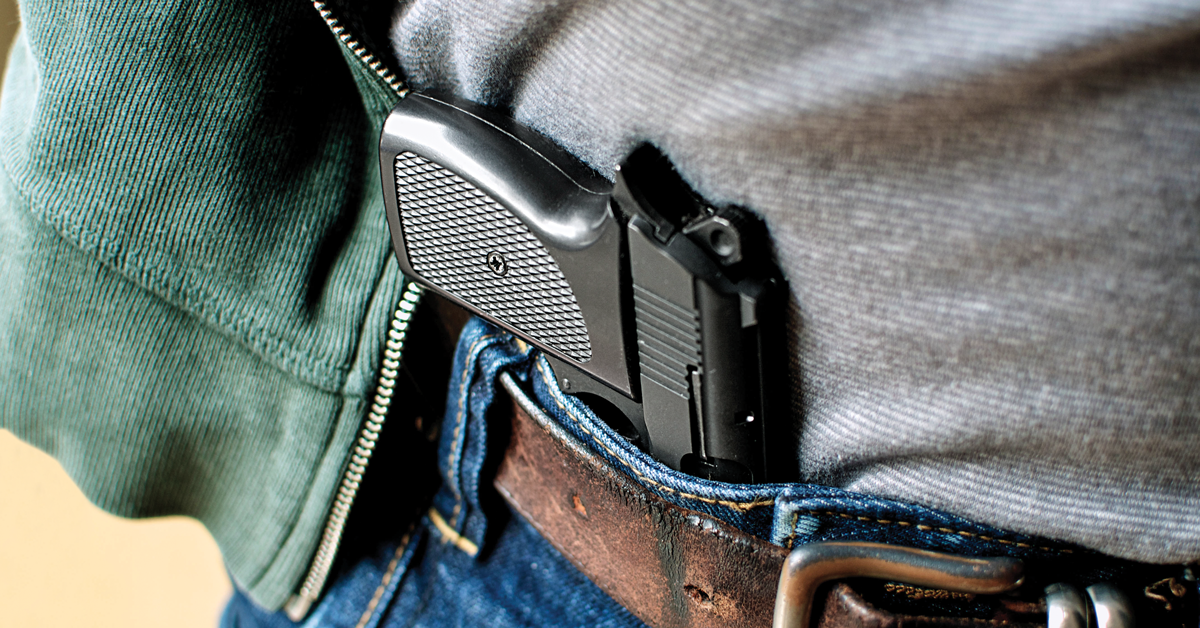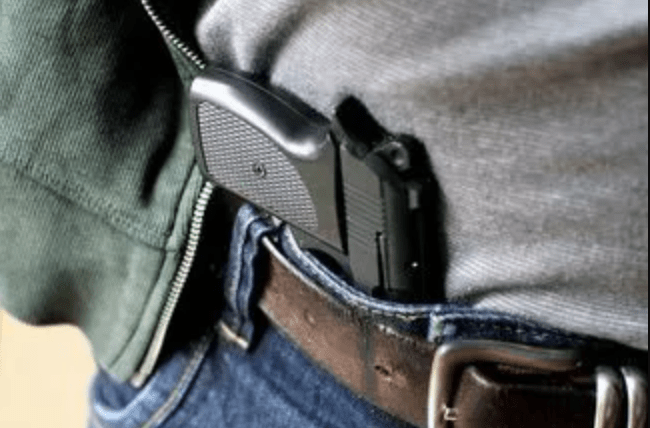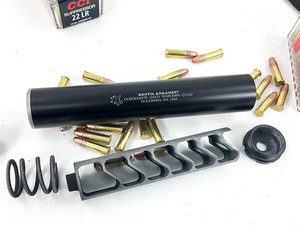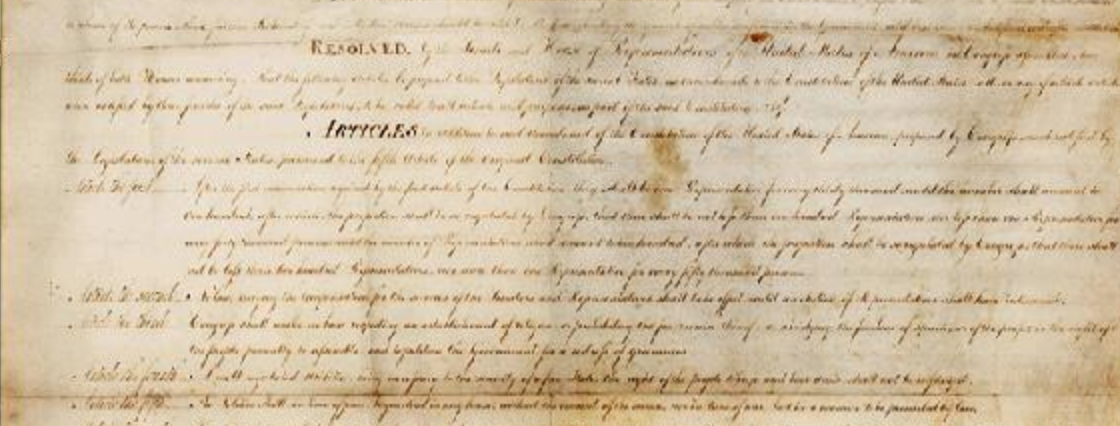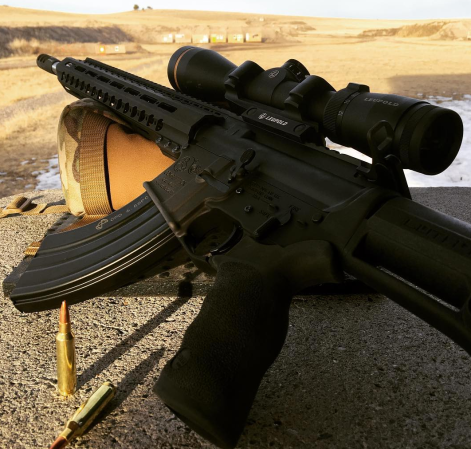We may earn revenue from the products available on this page and participate in affiliate programs. Learn More ›
TOP STORY
Would he support ‘common sense’ gun control? Wray won’t say
Testifying July 12 before the Senate Judiciary Committee, President Donald Trump’s FBI Director nominee Christopher Wray said he wouldn’t rule out supporting a universal background check bill, non-committedly saying he’s “review it and make an assessment based on the circumstances.”
Wray, during a full day of confirmation hearing testimony, was questioned by Connecticut’s Sen. Richard Blumenthal, a longtime gun control supporter, about his views on firearms laws.
“Would you support common sense measures to stop gun violence?” Blumenthal asked, implying that he has a clue what “common sense” means, especially in reference to firearms and firearms legislation.
“As you know, I have championed a number of them along with others on this committee and in the Senate, including universal background checks,” Blumenthal continued. “Would you support that kind of measure?”
“I would want to take a look at any specific legislative proposal and get back to you once I had evaluated a specific piece of legislation,” Wray responded. “But I do support efforts to deal with gun violence aggressively and effectively and I think my record — both as a line prosecutor and in the leadership of the department — is consistent with that.”
Blumenthal blithered on, perpetuating the false narrative that any proposed gun laws he has championed has any relationship whatsoever with “common sense.”
“In principle, you would support such measures, you’d want to see the details?” he asked. “But, for example, on universal background checks, you would not rule out supporting a measure?”
Wray said, essentially, he’d consider “common sense gun reform legislation” if, indeed, it made common sense which, of course, basically means he wouldn’t support anything proposed by Blumenthal.
“I would have to review it and make an assessment based on the circumstances,” he said. “But I can commit to you that being tough on gun violence is something that I would want to be as director of the FBI.”
Wray, a former federal prosecutor, was nominated by President Trump on June 7 to succeed dormer FBI Director James B. Comey, who Trump fired on May 9.
While the FBI director does not impose law or craft policy, as the chief executive of the federal government’s primary law enforcement agency, whoever holds the position is, in contemporary vernacular, an “influencer.”
Committee Chairman Chuck Grassley (R-Iowa) told the Associated Press Wray should be confirmed before the Senate’s August recess.
For more, go to:
— FBI contender Wray asked if he would support ‘common sense’ gun control
— 6 Takeaways as Senators Question FBI Nominee Christopher Wray
— A Women’s March on the NRA – but do they represent a woman’s view on guns?
— Black gun owners ask: Does the Second Amendment apply to us?
— Gun background check totals drop as market adjusts to Trump
GAINS REPUBLICAN SUPPORT
Dingell reintroduces zero tolerance for Domestic Abusers Act
Rep. Debbie Dingell (D-Mich.) on July 12 re-introduced her 2015 Zero Tolerance for Domestic Abusers Act that, she says, would “close loopholes” that allow abusers and stalkers access to guns in many other states.
The 2017 version of the bill, which has not been assigned a number, is co-sponsored by Rep. Dan Donovan (R-NY). Senator Amy Klobuchar (D-Minn.) has introduced similar legislation in the Senate.
The proposed legislation seeks to bar convicted stalkers from owning firearms and requires those found to have abused dating partners be blocked from purchasing or possessing firearms.
“No woman should ever live in fear for her life or safety because of domestic violence,” Dingell told the Detroit Free Press. “Too many families experience senseless tragedies that could have been prevented.”
Dingell’s 2015 bill was introduced in the House but never came up for a vote. While the odds of it passing this year are dubious, it is sure to fare better with Donovan, a former district attorney in New York City’s Richmond County (Staten Island), as a cosponsor.
“When I was district attorney, the crimes that kept me up at night were the ones that could have been prevented,” Donovan told the Associated Press. “There are clear warning signs — including a stalking conviction — before somebody commits serious acts of violence against a current or estranged partner. It’s common sense to keep tools of violence out of their hands.”
Federal law prohibits anyone from owning a firearm if convicted of abusing a spouse or someone they live with or have a child with, but it does not specifically include people who have abused a current or former dating partner. Statistics cited by Dingell and Donovan indicate that current or former partners commit more nonfatal violence against women than current or former spouses do.
For more, go to:
— Rep. Dingell aims to close gun loopholes for stalkers
— Bill Closes Loopholes To Restrict Gun Access To Stalkers, Abusers
— Bill would take guns from stalkers, abusive dating partners
STATE ROUNDUP
Six states adopt laws restricting abusers’ access to firearms in 2017
State legislators in Louisiana, Nevada, New Jersey, North Dakota, Tennessee and Utah all passed new restrictions on firearms for domestic abusers during their 2017 sessions, raising to 23 the number of states that have imposed laws limiting access to firearms for domestic abusers since 2013.
The trend in adopting laws designed to keep firearms from domestic abusers is among victories claimed by former New York City Mayor Michael Bloomberg’s Everytown for Gun Safety group during 2017 state legislative sessions.
According to a “report card” issued by Everytown on July 13, 17-of-18 states rejected bills to allow guns in schools, 14-of-16 states rejected bills to allow guns on college campuses, and 20-of-22 states didn’t pass bills that would have eliminated requirements for permits to carry guns.
In addition, Hawaii, Washington and Tennessee all passed new laws requiring that law enforcement be notified when anyone who fails to pass a background check tries to purchase a gun, while attempts to repeal background checks in Iowa and Nebraska both failed.
For more, go to:
— Everytown claims state wins on gun control
— Ohio lawmakers’ 17th-century mindset on gun laws: Brent Larkin
— MICHIGAN LAWMAKERS HAVE 8 WAYS TO MODIFY GUN LAW
— Mass. can lead research on gun violence
— Gun Control Fail: Baltimore’s Murder Rate ‘More Than Doubles Chicago’s’
— Gun rights advocate named to head Massachusetts wildlife agency
— Tennessee cities adjust to law letting guns in buses, hubs
— Wisconsin Bill Would Allow Firearm Safety Courses in High Schools
— New York: Vote for concealed carry in WyCo buildings delayed until September
— Iowa: Woodbury County officials getting legal help in battle over guns in courthouse
— Oklahoma, Arkansas pass laws allowing some officials to bring guns inside courthouses
IN THE COURTS
Florida open carry ban appealed to U.S. Supreme Court
Florida Carry on July 10 filed an appeal in the U.S. Supreme Court, challenging a 2016 Florida Supreme Court ruling that upheld state statutes that make Florida one of only five states that ban almost all open carry, with limited exceptions while hunting or fishing.
The 49-page brief argues Florida’s ban is unconstitutional as concealed carry in the state is a licensed privilege, and does meet the right to keep and bear arms protected under the Second Amendment.
The genesis of the rulings and subsequent appeals is the 2012 second-degree misdemeanor conviction of Dale Lee Norman, 26, who was found guilty of open carry of a weapon outside of his home in Fort Pierce when his shirt did not cover the handgun for which he had a concealed carry permit.
A lower court found Norman guilty of violating the state’s open carry ban, a second-degree misdemeanor punishable by up to 60 days in jail and a fine of up to $500. Norman, represented by Florida Carry, lost an appeal of his case in 2015.
Earlier this year, the Florida Supreme Court upheld the ruling in 4-2 vote, maintaining that the prohibition does not infringe on the Second Amendment as it only regulates only one manner of bearing arms — leaving open to Floridians who want to carry outside of their property the prospect of obtaining a concealed carry permit.
“At issue in this case is whether that guarantee protects the right to carry firearms in public for self-defense,” Norman’s petition says. “Neither party disputes that the issue is one of national importance or that the courts of appeals have already weighed in extensively.”
“Traditionally this court and the state courts have viewed the right to bear arms as categorically protecting the carrying of firearms openly,” Florida Carry posted in a statement. “Florida and the other four States that generally ban open carry are outliers in conflict with American traditions.”
If the Supreme Court accepts the case, it would be the first right to carry case to be heard since 2010’s McDonald v. City of Chicago.
For more, go to:
— Florida open carry ban appealed to U.S. Supreme Court
— Florida Open Carry Case Appealed to U.S. Supreme Court
— Florida Carry Takes Norman Open Carry Case to U.S. Supreme Court
